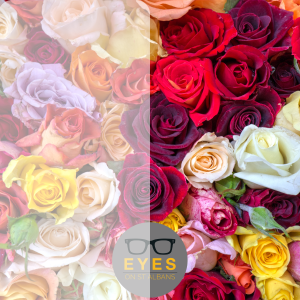As we get older, chances are that we, or someone we know, will develop cataracts – in one or both eyes. It’s part of the aging process and the changes in our eyes can start from, roughly, the age of 40.
We see many cases here at EYES on St Albans so we thought we’d explain a little more about what they are, how they occur and how they can be treated.
What are cataracts?
Cataracts are the main cause of blindness across the world – after uncorrected presbyopia which is a refractive error that makes it hard for middle-aged and older adults to see things up close. In the developed world, this can be well managed by wearing reading glasses, sadly, in other countries these aren’t always available.
They affect the lens in your eye. Over time, clumps of protein build up (and the lens fibres can change) turning the originally clear lens opaque or cloudy. This cloudiness reduces the amount of light getting through to your retina and therefore makes it harder to see things clearly. They affect people in different ways – some say they just make things a bit hazy (like looking through a mist), others report that colours aren’t as bright and in some people, they cause significant vision loss.
Can you prevent cataracts?
Not really – it’s estimated that over 90% of the population will get them over time. The longer we live, the greater the chances. However (and we’ll never miss the opportunity to nudge you about your eye health), making sure you have regular eye examinations, wearing your sunglasses, giving yourself screen breaks, staying well hydrated and eating a balanced diet can all help.
Smoking is one of the known causes of cataracts and we also know that people who’ve had eye injuries or recurrent inflammation (often through working in environments that are dusty, hot, dry or just dirty) in their eyes are more likely to get them.
Cataracts are more prevalent in people with some medical conditions, including diabetes, so ensuring you manage other health conditions is also really important.
How do I know if I’ve got them?
You might experience some changes in your vision – so book yourself in for an eye examination and we’ll do the rest.
If you’ve got a family history of cataracts, you’re more likely (but not guaranteed) to get them at some point –
Will I need surgery?
Cataract surgery is one of the most frequently performed, and successful, operations in the world.
In the past, cataracts have had to be ‘ripe’ or ‘mature’ before operations were carried out. This meant people often had moderate to severe vision loss and their lifestyle was severely affected.
Now, most surgeons are happy to perform cataract surgery as soon as the first signs appear – getting people back to clear vision and their normal lifestyle as quickly as they can.
We can refer you to the NHS or a private surgeon should you wish.
As ever, if you’re worried about your eyesight, notice any changes or just have that feeling that something’s not quite right, pop into the shop for a chat and we’ll be more than happy to help.



 EYES on a Flight
EYES on a Flight
Leave a Reply